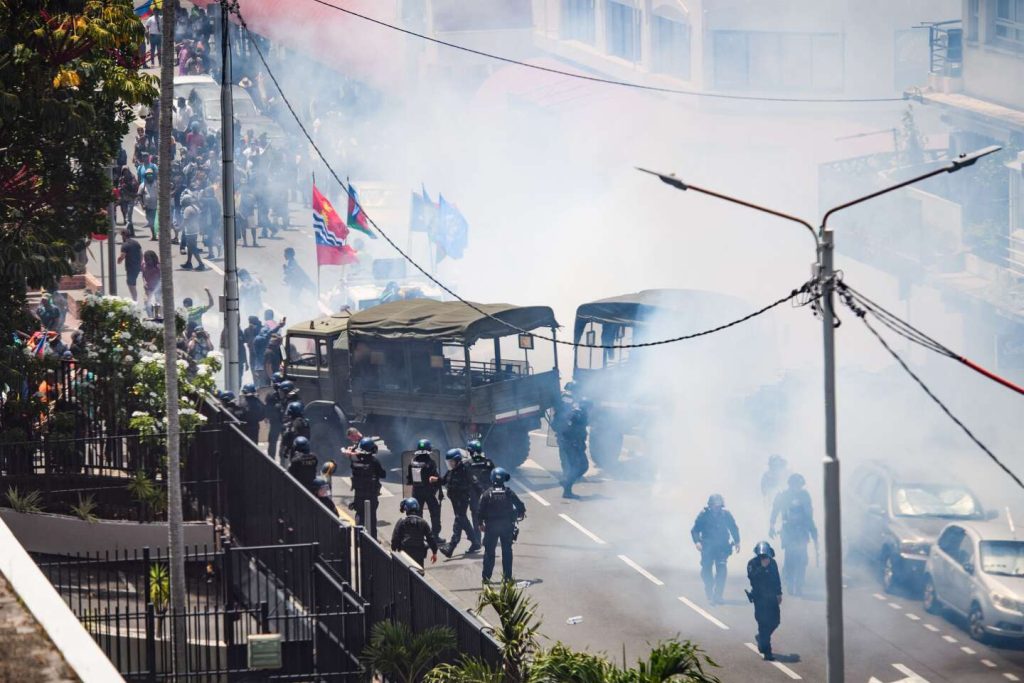In recent weeks, tensions have been rising between the two opposing camps in New Caledonia. On April 13, around 32,000 people, including 15,000 independence supporters and 17,000 non-independence supporters, took to the streets of Noumea to either support or oppose the expansion of the electoral roll in New Caledonia ahead of the upcoming provincial elections. The protesters from both camps marched in the city center, separated by a “sanitary cordon” put in place by security forces. A constitutional law project to open the electoral roll to residents who have been on the territory for at least ten years has reignited tensions between independence supporters and opponents.
On one side, loyalists carrying French flags marched to defend the “unfreezing of the electoral roll,” show their attachment to France, and defend their position in favor of opening the electoral roll. Sonia Backès, president of the South Province of New Caledonia (Renaissance) and a leading loyalist figure, led the mobilization supported by the right-wing Rassemblement-Les Républicains party. The procession chanted slogans such as “We are at home,” “No freedom without democracy, democracy is us,” and “Proud to be Caledonians, proud to be French.” Some protesters expressed their frustration at not having the same rights as elsewhere in the Republic, emphasizing that New Caledonia is part of France and has voted against independence three times.
On the other side, the pro-independence camp also organized a massive gathering to oppose the reform proposed by the government. Roch Wamytan, a leader of the Union Calédonienne, a major pro-independence party, expressed concerns that the peace in the region is threatened by the government’s actions. He warned that opening the electoral roll could lead to dire consequences. The protesters also highlighted their resistance to signing the “nickel pact” supported by the Minister of Economy, Bruno Le Maire, to support the nickel industry in New Caledonia. The pro-independence camp is united in their opposition to the government’s proposed changes.
The constitutional reform project has polarized the population in New Caledonia, with loyalists and independence supporters taking to the streets to express their views. The proposed changes to the electoral roll have brought to the surface deep-seated divisions and political ideologies in the region. The ongoing debate over the future of New Caledonia and its relationship with France has intensified in recent months, leading to large-scale protests and demonstrations by both camps. This demonstrates the complex and delicate nature of the political landscape in New Caledonia.
As the constitutional law project continues to be debated in the Parliament, tensions between the two camps are likely to persist. The upcoming provincial elections will be crucial for determining the future direction of New Caledonia and its relationship with France. The competing visions for the archipelago’s political status and economic development will continue to shape the discourse and actions of both loyalists and independence supporters in the coming months. The need for dialogue, understanding, and compromise between the two camps remains essential to ensure peace and stability in New Caledonia.


